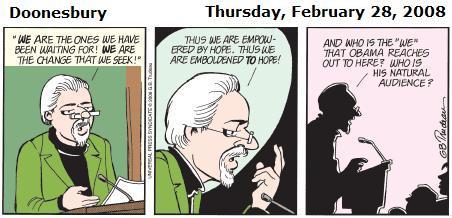|
Makom. Our term “space” derives from the Latin, and is thus relatively late. The nearest to it among earlier terms in the West are the Hebrew makom and the Greek topos (τόπος). The literal meaning of these two terms is the same, namely “place,” and even the scope of connotations is virtually the same (Theol. Wörterbuch..., 1966). Either term denotes: area, region, province; the room occupied by a person or an object, or by a community of persons or arrangements of objects. But by first occurrences in extant sources, makom seems to be the earlier term and concept. Apparently, topos is attested for the first time in the early fifth century B.C., in plays of Aeschylus and fragments of Parmenides, and its meaning there is a rather literal one, even in Parmenides. Now, the Hebrew book Job is more or less contemporary with these Greek sources, but in chapter 16:18 occurs in a rather figurative sense:
O earth, cover not thou my blood, and let my cry have no place
(makom).
Late antiquity was already debating whether this makom is meant to be a “hiding place” or a “resting place” (Dhorme, p. 217), and there have even been suggestions that it might have the logical meaning of “occasion,” “opportunity.”
Long before it appears in Job, makom occurs in the very first chapter of Genesis, in:
And God said, Let the waters under the heaven be gathered together unto one place (makom) and the dry land appear, and it was so
(Genesis 1:9).
This biblical account is more or less contemporary with Hesiod's Theogony, but the makom of the biblical account has a cosmological nuance as no corresponding term in Hesiod.
Elsewhere in Genesis (for instance, 22:3; 28:11; 28:19), makom usually refers to a place of cultic significance, where God might be worshipped, eventually if not immediately. Similarly, in the Arabic language, which however has been a written one only since the seventh century A.D., the term makām designates the place of a saint or of a holy tomb (Jammer, p. 27).
In post-biblical Hebrew and Aramaic, in the first centuries A.D., makom became a theological synonym for God, as expressed in the Talmudic sayings: “He is the place of His world,” and “His world is His place” (Jammer, p. 26). Pagan Hellenism of the same era did not identify God with place, not noticeably so; except that the One (τὸ ἕν) of Plotinus (third century A.D.) was conceived as something very comprehensive (see
for instance J. M. Rist, pp. 21-27) and thus may have been intended to subsume God and place, among other concepts. In the much older One of Parmenides (early fifth century B.C.), from which the Plotinian One ultimately descended, the theological aspect was only faintly discernible. But the spatial aspect was clearly visible, even emphasized (Diels, frag. 8, lines 42-49).
BIBLIOGRAPHY
Paul Dhorme, Le livre de Job (Paris, 1926).
H. Diels and W. Kranz, Die Fragmente der Vorsokratiker, 6th ed. (Berlin, 1938).
Max Jammer, Concepts of Space... (Cambridge, Mass., 1954).
J. M. Rist, Plotinus: The Road to Reality
(Cambridge, 1967).
Theologisches Wörterbuch zum Neuen Testament (1966), 8, 187-208, esp. 199ff.
-- SALOMON BOCHNER
|










Recent Comments